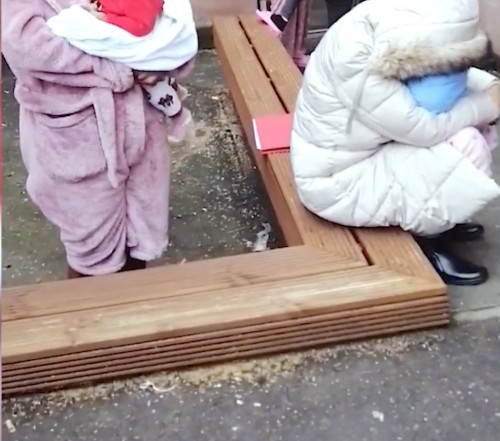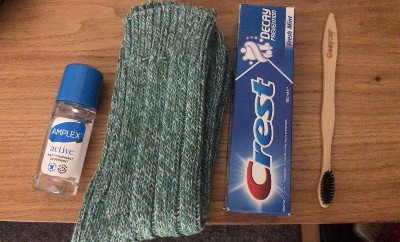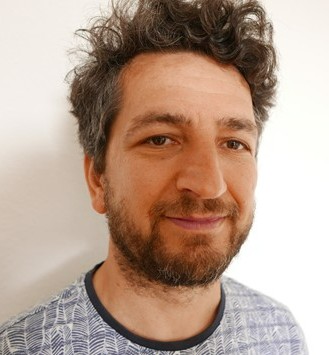Film captures the harsh realities of life in temporary accommodation during a pandemic
A new film documents the hardships and challenging living conditions faced by asylum seekers in Glasgow during the Covid-19 pandemic.
I'm Still Here, based on video diaries and photos shared by people living in temporary accommodation and other forms of housing, highlights the insecurity of their lives and constant battle to find the strength to carry on.

Around 350 asylum seekers were moved from their settled flats into various hotels in the city centre following the outbreak of Covid-19 in March 2020 in what was said to be an attempt to curb the spread of the virus.
A study last year by Edinburgh Napier University researchers found that they faced unsafe conditions, mobility restrictions and a lack of communication from service providers.
The report said the asylum seekers’ accounts – in which they likened their hotel-type accommodation to detention centres - “pointed to a provision that was inattentive towards their needs, vulnerability and wellbeing.”
Now an 18-minute documentary film produced as part of the research project by staff from Edinburgh Napier is to be premiered at Glasgow’s GMAC Film hub at a stakeholder event from 11am-2pm on Wednesday February 23.
Further public screenings are being organised across Scotland and the UK to highlight the challenges faced by the country’s asylum seekers and raise public awareness of the issue.
Film director Dr Kirsten MacLeod, the University’s Programme Leader for BA (Hons) Television, said: “I’m Still Here offers a powerful insight into the lived realities of men, women and children placed in temporary accommodation in Glasgow during the pandemic.

“Participants speak of the insecurity of the system in which they find themselves and of extremely challenging living conditions.
“From hotels, hostels and a mother and baby unit, they tell of the stress and hardships they have faced as well as their personal efforts to stay strong, bravely sharing their experiences in the hope that their stories can affect audiences and create change.
“Featuring footage from across 2021, the film aims to humanise and give voice to those seeking asylum and living in Scotland and highlights inadequate policy and treatment of asylum seekers.”
The research study - funded by the Economic and Social Research Council - and film were produced in collaboration with migrant-led grassroots organisation Migrants Organising for Rights and Empowerment (MORE).
Dr Taulant Guma, Principal Investigator and lecturer in Edinburgh Napier’s School of Applied Sciences, said: “The recent moves by private sector firms to relocate asylum seekers to hotels across the UK during the pandemic have led to a great deal of misinformation in the public and media about the ‘luxurious’ conditions offered by these temporary arrangements, misinformation which has further perpetuated the stigmatisation of asylum seekers during the pandemic.

“This co-produced documentary captures the impact and reality of these moves through the eyes and from the perspective of asylum seekers themselves.
“Through their video diaries, our participants tell a very different story from the one we often hear, a story that sheds new light on Covid realities for those individuals whose lives and mobility are largely regulated and restricted by the state and private companies.”
Yvonne Blake, co-founder of MORE, said: “The footage of the prison-like conditions the participants endured in the hotel capture the hostile environment at work and its significant impact on people’s mental health. Sadly, it has become common practice for the UK government Home Office through various contractors to subject international protection applicants to this kind of treatment.”